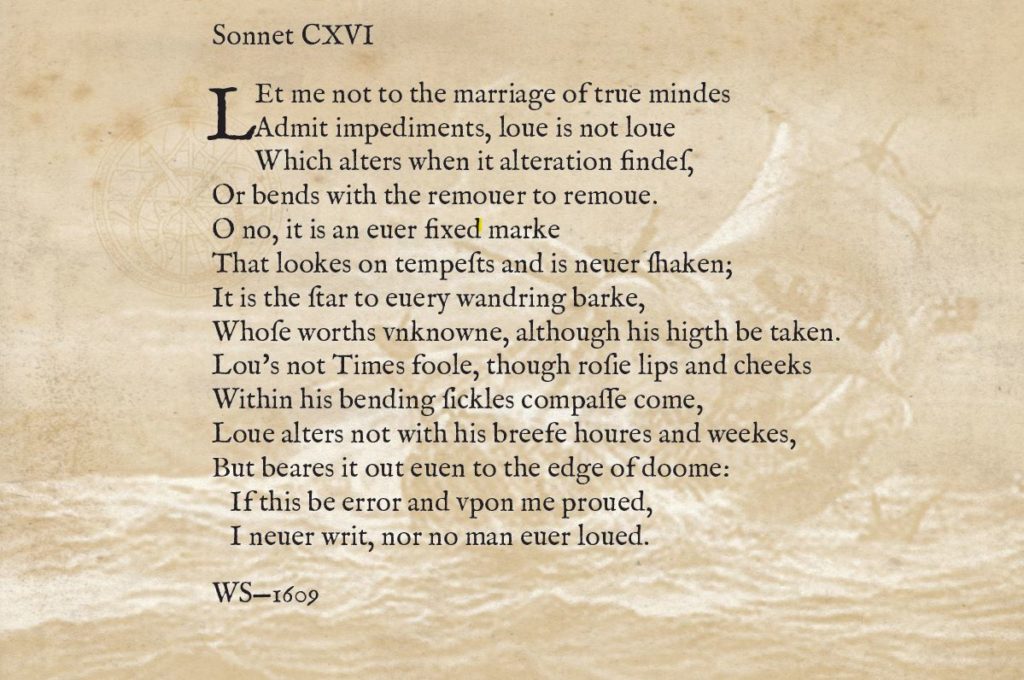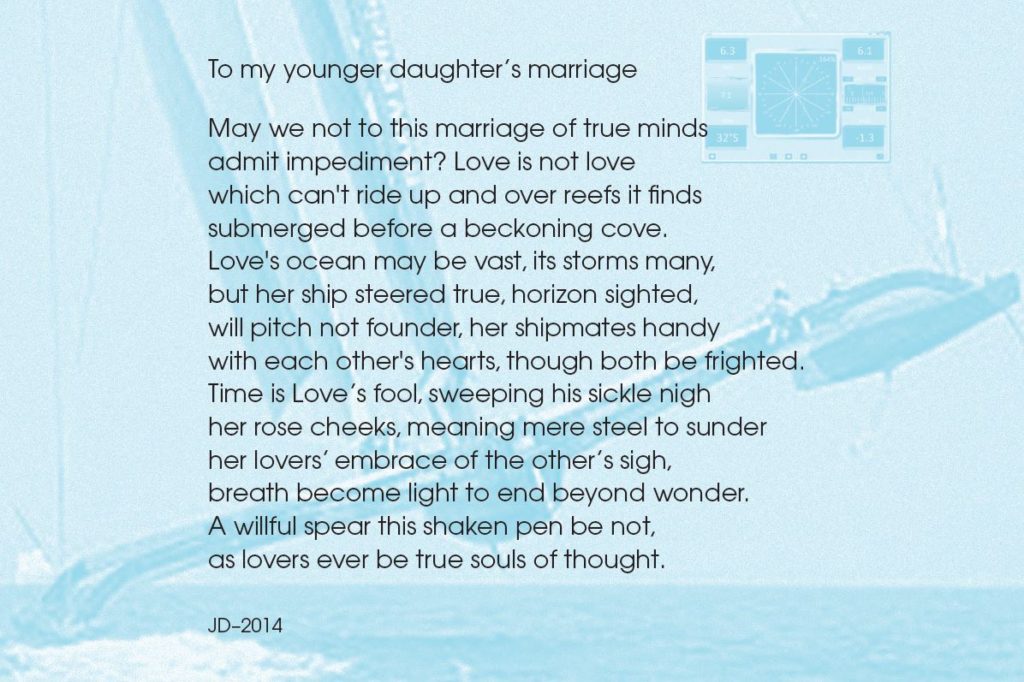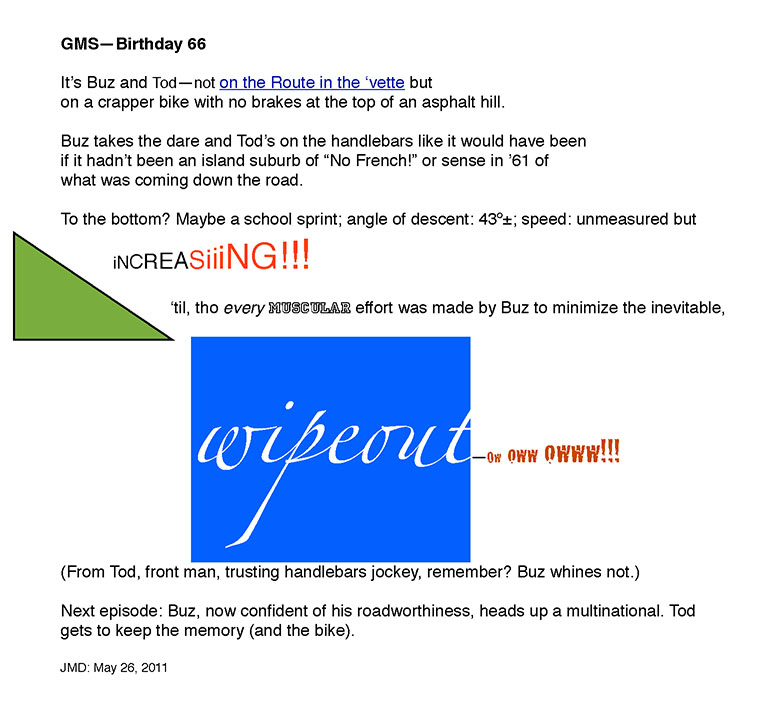Patricas
Patsy hugs Paddy
‘cus I love him best
and hate my wooly suit
the tickley furry rug
Dancing colleen
Red and green the tints by hand applied,
the cailín poses strongly—
the dance is just begun.
At the seashore
Bunty simpers but Patricia
smiles—
larger than the little women posing
on the now obesiant shingle.
Admiralty wave
The few fall down from an English sky:
all are alive as never again.
Pat looks sure at the smitten eye
as right as an English reign.
By the sun dial
sober-suited Patience smiles the promised kiss of Springtime.
Paddy’s now a setter, sitting. Granny’s clipped lawns surround,
like a Rolls rug handed on,
lovely ‘innocence.’
Bride
Groom inward, the bride engages
dark clouds far awaying.
Unpocketed silver is like the moment—given.
HMC navalperson and Guilford girl are married in ‘44.
The dead cowboy
Flung head down on the bungalow stairs,
the dead cowboy is six and hasn’t been dead for long,
his shuttering lashes say—
Mummy’s coming! peek a little surprise her when don’t smile!
Oh, look! Another dead cowboy!
Kawandag
“. . . the loveliest night of the year”
the cowboy sings up to Daddy, the stars,
reaching home along the road.
In the paper
the young matron, engineer’s wife,
will travel to Monte Carlo (where the Rainiers live)
to see her Father whom we’ve never
seen in the prairie Tribune.
On the terrace
great merry is made for Pat is forty.
Paddy keeshond leaps to sunlight shivers bush
and the Siamese do not sulk.
More glamorous by far than any at Rick’s,
Pat and Doug in black number/white jacket ship the bar—
smile beauty/handsome is
neo-noir
Regality
Patrica rex, as ‘t were, regales us all
with laughter—
the moment modish, lush, slips past a certain age,
her century halved.
Choking the cowboy
Iodine fog sees Inniskilling:
the murdered self claws likewise.
Abandon all Bobs, Dicks and Heartfords, ye who’d exit anger.
At the swim meet
brother Guinness, the younger, is sober among others, also so.
Damp mud beneath our bums—swimmers grin victory.
None enchant: no cowboy wins.
Pat, 70, is in white shorts beckoning maritime clouds.
For my Mother on her Eightieth Birthday
July 2, 2002
J.M.D.



